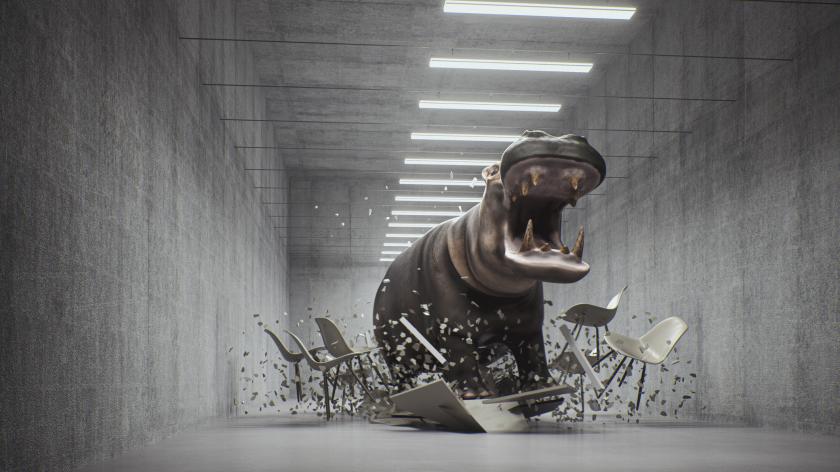The NHS has started educating its senior leaders about microaggressions – sparking wider conversations about what microaggressions are and how they manifest in the workplace.
Microaggressions are defined by psychologist Derald W.Sue as, “The everyday slights, indignities, put downs and insults that people of colour, women, LGBT populations or those who are marginalised, experience in their day-to-day interactions with people.”
Put simply, a microaggression is a behaviour or action – whether accidental or deliberate – that subtly undermines someone. Our micro-messages are minute gestures – they can be facial expressions, a tone of voice, and/or assumptions made. These messages have a profound impact on whether people feel a sense of belonging, and a sense of inclusion or exclusion.
These little acts of microaggression show up in the workplace all around us, for example:
- A colleague saying “that’s so gay” – associating a negative with a certain sexual orientation.
- Asking someone “where are you from?” – implying that a person of a different ethnic group does not belong.
- Touching the hair of a black colleague.
While in these examples there may be no intent to harm people, the reality is that being on the receiving end of microaggressions hurts.
Perhaps the comment, “that’s so gay”, was intended as a joke. Perhaps asking a colleague from a minority ethnic group, “where are you from”, was asked with genuine curiosity. And perhaps touching the hair of a black colleague was done to connect. But that doesn’t mean that any of these comments is ok.
While there is often no intent to harm people, being on the receiving end of microaggressions still hurts.
So, to create safe, respectful and inclusive workplaces, people need to foster a culture that deals with both overt discrimination as well as everyday microaggressions.
The impact microaggressions can have on employees
Microaggressions can have a detrimental impact, not just on the mental health of individuals but also their physical health too, according to health research.
In fact, the impact of microaggressions in the workplace is significant. In 2016 academic professors King & Jones, reported in the Harvard Business Review their meta analysis on the effects of subtle and overt discrimination.
The results revealed that experiencing any kind of discrimination has negative consequences – and importantly, the findings showed that across every job and individual outcome, the effects of subtle discrimination were at least as bad as, if not worse than, overt discrimination.
The effects were not only more damaging because of the frequency of these subtle acts of discrimination, but also because of the lack of consequences.
How microaggressions can be tackled
Fostering a culture of respect and inclusion starts with awareness. It is also important to build knowledge to understand how microaggressions manifest in the workplace.
Development needs to include exploration of these subtle unintended acts of unconscious bias in a trusted and psychologically safe environment.
Creating a trusted and psychologically safe environment is crucial to tackling microaggressions.
For example, facilitated guided conversations that enable deep and vulnerable reflection on our experiences can feel uncomfortable and painful, and can be a critical step in changing our micro-behaviours.
Training can then progress to incorporating strategies to promote respect and inclusion, as well as how to deal with microaggressions in the moment. This training can include continued learning around microaggressions, practising active allyship, and using inclusive language.
We know that we’re far more likely to spot bias in others than we are in ourselves, so we can agree to ‘call each other out’ and take the time to respectfully talk about something a colleague said that may not be appropriate.
Tools to slow down our thinking and shift our perspective are also helpful in mitigating bias, such as the below PAUSE model, invented by Cook Ross to tackle bias as it happens.
P – Pay attention
A – Acknowledge your assumptions
U – Understand your perspective
S – Seek different perspectives
E – Examine your options and make a decision.
Models such as this can be used to help individuals understand their bias and why they act in a certain way. In turn, this can help change their perceptions and behaviour, so as not to detrimentally impact others with microaggression.
Combating microaggression in practice
Unconscious bias is ingrained in human behaviour, and it takes continuous learning and commitment to mitigate the negative and unintended consequences. As fallible human beings we will make mistakes; owning the outcome of our mistakes, and demonstrating our curiosity and intention to learn will enable progress.
Unconscious bias is ingrained in human behaviour, and it takes continuous learning and commitment to mitigate the negative and unintended consequences.
Culture is leader-led and developed in the behaviours of all colleagues. This means that training interventions must be leader-led and rolled out to all colleagues, in a manner which weaves in across the employee lifecycle.
However, as with all cultural change, training that is supported by hardwiring processes and practices will create an holistic approach, for example:
- Creating policies and practices to describe aspirational behaviours you expect from employees.
- Building a safe space for employees to come forward about microaggressions via a speak up line.
- Encouraging a ‘speak up’ culture with an appropriate protocol to investigate allegations and provide support to those involved.
- Leaders who are role models.
It is worth seeking out diversity and inclusion specialists who will be able to provide training to effect behaviour change. This will help to promote an inclusive culture and equip people with the knowledge and confidence to deal with inappropriate behaviours.
The NHS has started educating its senior leaders about microaggressions – sparking wider conversations about what microaggressions are and how they manifest in the workplace.
Microaggressions are defined by psychologist Derald W.Sue as, "The everyday slights, indignities, put downs and insults that people of colour, women, LGBT populations or those who are marginalised, experience in their day-to-day interactions with people."
Put simply, a microaggression is a behaviour or action – whether accidental or deliberate – that subtly undermines someone. Our micro-messages are minute gestures – they can be facial expressions, a tone of voice, and/or assumptions made. These messages have a profound impact on whether people feel a sense of belonging, and a sense of inclusion or exclusion.
These little acts of microaggression show up in the workplace all around us, for example:
- A colleague saying “that’s so gay” – associating a negative with a certain sexual orientation.
- Asking someone “where are you from?” – implying that a person of a different ethnic group does not belong.
- Touching the hair of a black colleague.
While in these examples there may be no intent to harm people, the reality is that being on the receiving end of microaggressions hurts.
Perhaps the comment, “that’s so gay”, was intended as a joke. Perhaps asking a colleague from a minority ethnic group, “where are you from”, was asked with genuine curiosity. And perhaps touching the hair of a black colleague was done to connect. But that doesn’t mean that any of these comments is ok.
While there is often no intent to harm people, being on the receiving end of microaggressions still hurts.
So, to create safe, respectful and inclusive workplaces, people need to foster a culture that deals with both overt discrimination as well as everyday microaggressions.
The impact microaggressions can have on employees
Microaggressions can have a detrimental impact, not just on the mental health of individuals but also their physical health too, according to health research.
In fact, the impact of microaggressions in the workplace is significant. In 2016 academic professors King & Jones, reported in the Harvard Business Review their meta analysis on the effects of subtle and overt discrimination.
The results revealed that experiencing any kind of discrimination has negative consequences – and importantly, the findings showed that across every job and individual outcome, the effects of subtle discrimination were at least as bad as, if not worse than, overt discrimination.
The effects were not only more damaging because of the frequency of these subtle acts of discrimination, but also because of the lack of consequences.
How microaggressions can be tackled
Fostering a culture of respect and inclusion starts with awareness. It is also important to build knowledge to understand how microaggressions manifest in the workplace.
Development needs to include exploration of these subtle unintended acts of unconscious bias in a trusted and psychologically safe environment.
Creating a trusted and psychologically safe environment is crucial to tackling microaggressions.
For example, facilitated guided conversations that enable deep and vulnerable reflection on our experiences can feel uncomfortable and painful, and can be a critical step in changing our micro-behaviours.
Training can then progress to incorporating strategies to promote respect and inclusion, as well as how to deal with microaggressions in the moment. This training can include continued learning around microaggressions, practising active allyship, and using inclusive language.
We know that we’re far more likely to spot bias in others than we are in ourselves, so we can agree to ‘call each other out’ and take the time to respectfully talk about something a colleague said that may not be appropriate.
Tools to slow down our thinking and shift our perspective are also helpful in mitigating bias, such as the below PAUSE model, invented by Cook Ross to tackle bias as it happens.
P – Pay attention
A – Acknowledge your assumptions
U – Understand your perspective
S – Seek different perspectives
E – Examine your options and make a decision.
Models such as this can be used to help individuals understand their bias and why they act in a certain way. In turn, this can help change their perceptions and behaviour, so as not to detrimentally impact others with microaggression.
Combating microaggression in practice
Unconscious bias is ingrained in human behaviour, and it takes continuous learning and commitment to mitigate the negative and unintended consequences. As fallible human beings we will make mistakes; owning the outcome of our mistakes, and demonstrating our curiosity and intention to learn will enable progress.
Unconscious bias is ingrained in human behaviour, and it takes continuous learning and commitment to mitigate the negative and unintended consequences.
Culture is leader-led and developed in the behaviours of all colleagues. This means that training interventions must be leader-led and rolled out to all colleagues, in a manner which weaves in across the employee lifecycle.
However, as with all cultural change, training that is supported by hardwiring processes and practices will create an holistic approach, for example:
- Creating policies and practices to describe aspirational behaviours you expect from employees.
- Building a safe space for employees to come forward about microaggressions via a speak up line.
- Encouraging a ‘speak up’ culture with an appropriate protocol to investigate allegations and provide support to those involved.
- Leaders who are role models.
It is worth seeking out diversity and inclusion specialists who will be able to provide training to effect behaviour change. This will help to promote an inclusive culture and equip people with the knowledge and confidence to deal with inappropriate behaviours.





